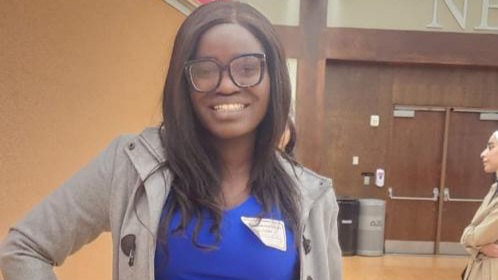 As Nigeria continues to seek solutions to its engineering and utility challenges, an expert in engineering education, Salami Ibukunoluwa, is leading a revolution aimed at transforming the nation’s engineering landscape.
As Nigeria continues to seek solutions to its engineering and utility challenges, an expert in engineering education, Salami Ibukunoluwa, is leading a revolution aimed at transforming the nation’s engineering landscape.
Ibukunoluwa holds a bachelor’s degree in systems engineering from the University of Lagos and a master’s degree in industrial engineering from the University of Benin, Ugbowo is determined to make a mark in the engineering sector of Nigeria and beyond.
Findings showed that she began her career as one of the pioneer graduate trainees at BEDC Electricity PLC, the fifth-largest distribution company in Nigeria.
During her time at BEDC, she advanced to the position of Head of the Agency and Channels Development Department. Her role involved ensuring customers in BEDC’s coverage areas—Edo, Delta, Ondo, and Ekiti—had access to convenient and efficient payment channels for their utility bills. Additionally, she led BEDC’s corporate social responsibility initiatives.
While working at BEDC, Ibukunoluwa noticed a significant gap between academic learning and industry application among engineering graduates. This observation drove her to pursue a master’s degree in Production Engineering with a major in Industrial Engineering at the University of Benin, Ugbowo.
Her master’s thesis utilized ARIMA (AutoRegressive Integrated Moving Average) models to predict road traffic accidents in Edo State, using data from the Federal Road Safety Corps in Benin City.
Despite earning an advanced degree in Industrial Engineering, Ibukunoluwa felt that many of her questions remained unanswered.
This led her to pursue a doctorate in Engineering Education Research, focusing on bridging the gap between academic knowledge and industry application in engineering.
Her research aims to propose solutions that will improve engineering education practices and develop competent, globally competitive engineers.
Ibukunoluwa is particularly passionate about helping young engineers transition from academic settings to their careers in industry or academia.
She is currently a third-year doctoral student at the University of Nebraska-Lincoln (UNL). During her PhD journey, she has served as the Student Chapter Chair of the American Society for Engineering Education (ASEE) Student Division.
In addition to her role with ASEE, she has served as the Quality-of-Life Co-Chair for the Graduate Student Assembly at UNL and as the Discipline-Based Engineering Education Research Student Coordinator for her department. In this capacity, she has fostered relationships with top universities offering doctoral degrees in Engineering Education, inviting speakers to discuss their groundbreaking research with UNL’s Discipline-Based Research Community.
Ibukunoluwa is preparing to defend her proposal, which explores how graduate school education influences the development of competencies in advanced degree students, enabling them to function as global and professional engineers. Her research aims to improve engineering education curricula, ensuring students can successfully navigate their careers as practicing engineers.
She has coauthored three papers focused on helping students transition to the industry. Her goal is to collaborate with faculty designing courses that develop both professional and non-technical competencies for engineering students at universities worldwide.
Ibukunoluwa is particularly interested in Nigeria because she believes the engineering industry in Nigeria holds the potential to address the country’s prevalent utility challenges.
She emphasizes the importance of properly training students and equipping them with the necessary competencies to thrive in Nigeria’s dynamic engineering environment.
Her vision is to see Nigeria become a hub for competent and globally competitive engineers who can effectively contribute to solving local issues. By bridging the gap between academic knowledge and industry applications, Ibukunoluwa aims to ensure Nigerian engineers are well-prepared to tackle the country’s engineering challenges and drive sustainable development.
Ibukunoluwa’s dedication to this vision is evident in her extensive research and active involvement in engineering education initiatives. She continues to advocate for educational reforms that will empower future engineers and contribute to Nigeria’s growth and development.
Her work serves as an inspiration, demonstrating how dedicated individuals can drive significant changes in their fields and make a lasting impact on their communities.



